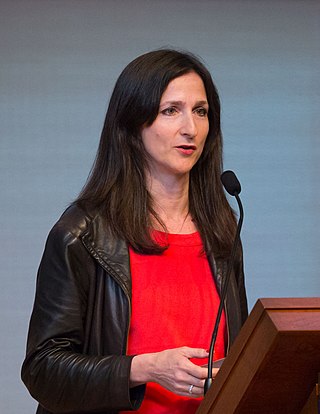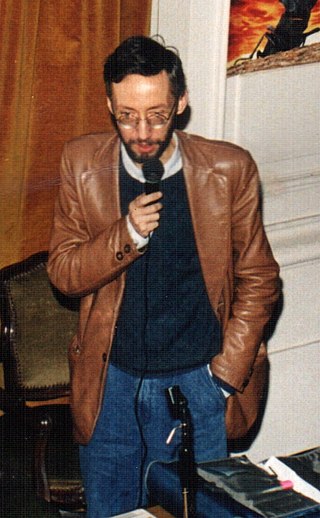
Gerard Peter Kuiper was a Dutch-American astronomer, planetary scientist, selenographer, author and professor. The Kuiper belt is named after him.

The Discovery Program is a series of Solar System exploration missions funded by the U.S. National Aeronautics and Space Administration (NASA) through its Planetary Missions Program Office. The cost of each mission is capped at a lower level than missions from NASA's New Frontiers or Flagship Programs. As a result, Discovery missions tend to be more focused on a specific scientific goal rather than serving a general purpose.

Michel Gustave Édouard Mayor is a Swiss astrophysicist and professor emeritus at the University of Geneva's Department of Astronomy. He formally retired in 2007, but remains active as a researcher at the Observatory of Geneva. He is co-laureate of the 2019 Nobel Prize in Physics along with Jim Peebles and Didier Queloz, and the winner of the 2010 Viktor Ambartsumian International Prize and the 2015 Kyoto Prize.

Sara Seager is a Canadian-American astronomer and planetary scientist. She is a professor at the Massachusetts Institute of Technology and is known for her work on extrasolar planets and their atmospheres. She is the author of two textbooks on these topics, and has been recognized for her research by Popular Science, Discover Magazine, Nature, and TIME Magazine. Seager was awarded a MacArthur Fellowship in 2013 citing her theoretical work on detecting chemical signatures on exoplanet atmospheres and developing low-cost space observatories to observe planetary transits.

Heidi B. Hammel is an American planetary astronomer who has extensively studied Neptune and Uranus. She was part of the team imaging Neptune from Voyager 2 in 1989. She led the team using the Hubble Space Telescope to view Shoemaker-Levy 9's impact with Jupiter in 1994. She has used the Hubble Space Telescope and the Keck Telescope to study Uranus and Neptune, discovering new information about dark spots, planetary storms and Uranus' rings. In 2002, she was selected as an interdisciplinary scientist for the James Webb Space Telescope.
Francis Nimmo is a Professor of Planetary Science at the University of California Santa Cruz.

Andrea Milani Comparetti was an Italian mathematician and astronomer, based at the University of Pisa.

Paolo Farinella was an Italian scientist very active in the field of planetary science and in particular in the study of asteroids and small bodies of the Solar System.

Reta F. Beebe is an American astronomer, author, and popularizer of astronomy. She is an expert on the planets Jupiter and Saturn, and the author of Jupiter: The Giant Planet. She is a professor emeritus in the Astronomy Department at New Mexico State University and 2010 winner of the NASA Exceptional Public Service medal.

Patrick Michel is a French planetary scientist, Senior Researcher at CNRS, member of the team TOP of the CNRS and Université Côte d'Azur Lagrange Laboratory at the Côte d'Azur Observatory in Nice (France), and also a Global Fellow of the University of Tokyo.

Emily Stewart Lakdawalla is an American planetary geologist and former Senior Editor of The Planetary Society, contributing as both a science writer and a blogger. She has also worked as a teacher and as an environmental consultant. She has performed research work in geology, Mars topography, and science communication and education. Lakdawalla is a science advocate on various social media platforms, interacting with space professionals and enthusiasts on Facebook, Google+ and Twitter. She has appeared on such media outlets as NPR, BBC and BBC America.
Bonnie J. Buratti is an American planetary scientist in the Division of Earth and Space Sciences at the Jet Propulsion Laboratory in Pasadena, California, where she leads the Comets, Asteroids, and Satellites Group. Her research involves the composition and physical properties of planetary surfaces, and volatile transport in the outer solar system.
Sarah T. Stewart-Mukhopadhyay is an American planetary scientist known for studying planet formation, planetary geology, and materials science. She is a professor at the University of California, Davis in the Earth and Planetary Sciences Department. She was a professor at Harvard University Department of Earth and Planetary Sciences from 2003 to 2014.

Becky Chambers is an American science fiction writer. She is the author of the Hugo Award-winning Wayfarers series as well as novellas including To Be Taught, If Fortunate (2019) and the Monk & Robot series, which begins with the Hugo Award-winning A Psalm for the Wild-Built (2021). She is known for her innovative worldbuilding and character-driven stories, and is a pioneer of the hopepunk genre.

Amy Simon is an American planetary scientist at NASA's Goddard Space Flight Center, involved in several missions of the Solar System Exploration Program.

Bethany List Ehlmann is an American geologist and a professor of Planetary Science at California Institute of Technology. A leading researcher in planetary geology, Ehlmann is also the President of The Planetary Society, Director of the Keck Institute for Space Studies, and a Research Scientist at NASA's Jet Propulsion Laboratory.
Diana Valencia is a Colombian planetary scientist and astrophysicist. She is an associate professor of Physics and Astrophysics, University of Toronto, Scarborough, and of Astronomy & Astrophysics, University of Toronto.

Lynnae C. Quick is an American planetary geophysicist and Ocean Worlds Planetary Scientist at NASA Goddard Space Flight Center. Her research centers on theoretical modeling of cryovolcanic processes on the icy moons and dwarf planets in the Solar System as well as modeling volcanic activity on Venus and the Moon. Quick is a member of the Dawn, Europa Clipper, and Dragonfly Mission science teams. She is also a member of the NASA Solar System Exploration Research Virtual Institute (SSERVI) Toolbox for Research and Exploration (TREX) team, and serves as co-chair of the Earth and Planetary Systems Sciences section of the National Society of Black Physicists.













